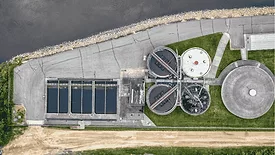Water
The affected waterways include the Paskamansett River, Weweantic River, Salisbury Plain River, Hedges Pond, Seine Pond, and Bennetts Brook.
Read More
EPA Signals New Rules for Certain Uses of Five Phthalate Chemicals
Under the Toxic Substances Control Act, EPA’s review looked only at uses regulated under federal chemical safety law.
Read More
Updated Groundwater Cleanup Plan for Radiation Technology Inc. Superfund Site
The update follows years of study showing that contamination from historic rocket engine testing remains deep in the bedrock.
Read More
Michigan’s Other Water Crisis: PFAS’s Prevalence in Private Wells
Michigan has met its match with the state’s over one million private wells, urging residents to get their water tested.
Read More
EPA Orders Inspections of Nearly 100 LADWP Water Reservoirs
Federal review finds maintenance gaps but no immediate water quality threat
Read More
A Christmas Story - or Something of the Sort
Drilling through addiction, cold fronts, broken rigs, and hard-earned wisdom.
Read More
And the Winner of The Driller’s E.G.O. Award is…Jim Beath!
The Driller announced Jim as the winner in New Orleans at Groundwater Week
Read More
Thousands of Acres at Oak Ridge Cleared for Reuse, With Some Questions Remaining
Surveys show that 16,377 of the reservation’s 33,069 acres were never impacted by Department of Energy operations and do not require cleanup
Read More
Dig deeper into the drilling and water supply industry!
Build your knowledge with The Driller, covering the people, equipment and technologies across drilling markets.
SIGN UP NOWCopyright ©2026. All Rights Reserved BNP Media.
Design, CMS, Hosting & Web Development :: ePublishing












